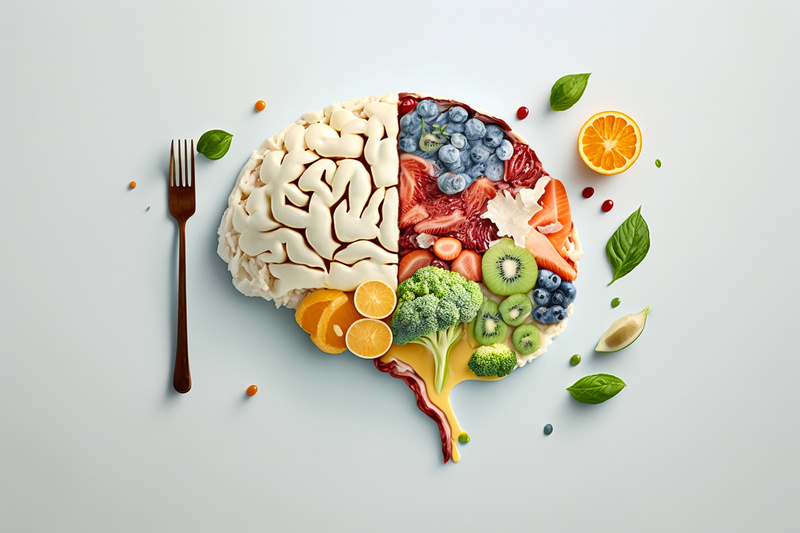Healthy Smile, Healthy Mind: The Science Behind
How Oral Health Affects Brain Health

A radiant smile extends beyond its aesthetic allure—it symbolizes strong overall health. Dive into a quick online search, and numerous sources underscore the connection between a vibrant smile and holistic mental well-being.
Of course, you may be familiar with the merits of brushing, flossing, and routine dental visits as advocated for by my Royal Oak dentist and others. However, many remain unaware of the intricate relationship between oral and brain health.
So, what underpins this fascinating relationship? Let's delve deeper.
The
Intricate Web Of Health Connections
Think about it: an infection in your mouth isn't confined to just that area. Harmful bacteria from your gums can journey via your bloodstream, impacting other regions of your body, notably your brain.
This connection is termed the oral-systemic link, a concept increasingly acknowledged in contemporary medicine. More specifically, it pinpoints the association between periodontal disease (gum disease) and cognitive decline.
But how do these two intertwine?
1. Periodontal Disease And Cognitive Decline
Periodontal disease, often referred to as gum disease, is characterized by persistent inflammation of the gums. Its link to cognitive decline is alarming. According to a study appearing in the National Institute of Aging, those with periodontal disease face a higher risk of developing Alzheimer's.
But why? Chronic inflammation from this disease doesn't remain localized to the mouth. It can spread, potentially reaching the brain and promoting neural inflammation. This can then pave way for degenerative neurological conditions.
2. Oral Microbiome's Silent Role
Your mouth is a bustling metropolis of bacteria, a delicate balance of good and bad. Maintaining this balance is critical. When harmful bacteria thrive, due to factors like a sugar-rich diet, it can result in tooth decay.
The bacterial shifts in the mouth can influence the brain's biochemistry. Research from Pennsylvania State University suggests that these changes can lead to mood disturbances and cognitive anomalies over time. This highlights the profound indirect impact your oral health has on your mental state.
3. The Direct Impact Of Dental Procedures
It's a misconception that dental procedures solely pertain to fillings or extractions. In fact, modern dentistry plays a crucial role in managing conditions that can influence brain health.
Take, for instance, sleep apnea—a sleeping disorder that can interrupt your rest cycle and lead to memory problems. Thankfully, dental innovations have led to the development of appliances specifically to treat this condition.
These devices reposition the lower jaw and tongue to keep the airway open, preventing sleep apnea episodes and promoting uninterrupted sleep. When effectively managed, patients not only sleep better but also experience improved cognitive functions.
4. Nutritional Implications On Oral And Brain Health
Diet influences not only your physical appearance but also profoundly impacts your oral and, by extension, brain health. For example, eating antioxidant-rich foods like berries and leafy greens can boost gum health and deter cognitive decline.
Conversely, diets high in processed foods and sugars can exacerbate dental issues. Additionally, a report from the National Library of Medicine suggests they may heighten the risk of neurodegenerative diseases like Alzheimer's.
The connections between mouth and brain underscore the importance of holistic health approaches. Understanding the comprehensive effects of your dietary choices underscores the need for a generally healthier and balanced diet.

Building
Healthy Dental Routines
Prioritizing our oral health goes beyond showcasing a perfect smile. It's intrinsically linked to our overall well-being. Here's why regular dental check-ups are invaluable:
1. Early detection: By visiting your dentist routinely, you can catch and address dental issues in their infancy, preventing them from escalating.
2. Oral hygiene guidance: Dental professionals offer tailored advice on oral hygiene practices, ensuring you adopt the best methods suited to your unique needs.
3. Dietary counseling: Dentists can offer dietary advice, pointing out foods or habits that might be detrimental to your teeth. Simultaneously, they can suggest foods that boost both oral and brain health.
4. Education on the oral-systemic link: Regular dental visits can educate you on the crucial link between oral health and overall bodily health, emphasizing the broader health implications of oral care.
Establishing and maintaining these healthy dental routines is a commitment to your overall wellbeing. It can ensure a radiant smile, optimal oral health, and, by extension, a healthier, happier life.
The Takeaway
Your oral health is a window to more than just your dietary habits; it’s a mirror reflecting your brain’s wellbeing.
It's imperative to understand this intimate connection and prioritize regular dental check-ups, not just for a radiant smile, but for a vibrant mind. Remember, a healthy smile today could be your first step towards a sharper mind tomorrow